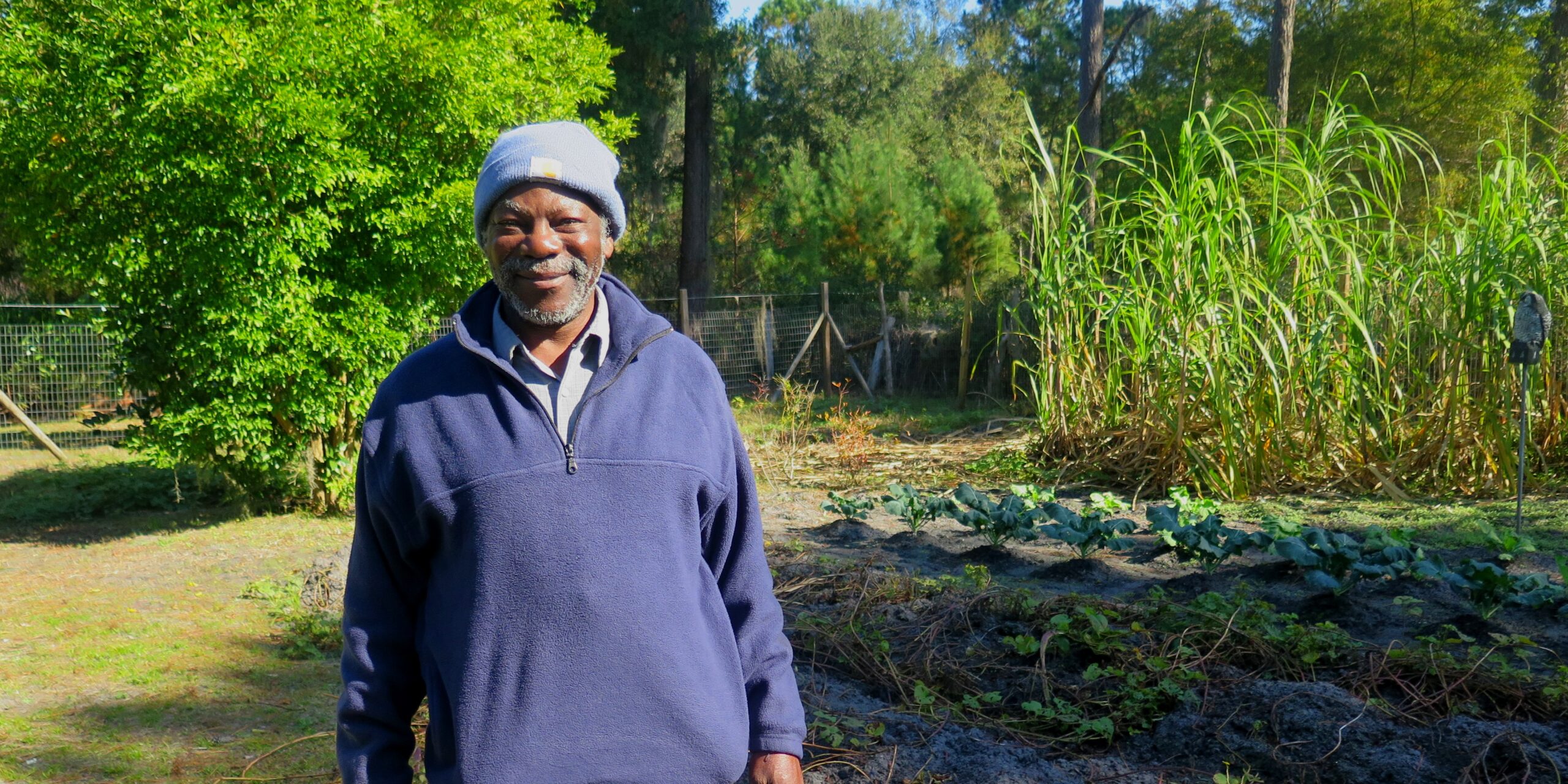Gullah-Geechee Residents Fight Sapelo Island Development

Molly Samuel / WABE
Most of Sapelo Island is a wildlife preserve owned by the state: bright white beaches, wide-open salt marsh and giant live oak trees with Spanish moss hanging down.
The ferry to the island mostly carries visitors on day trips with cameras and binoculars and backpacks.
But a few dozen people live here in one of the largest remaining Gullah-Geechee communities in the country. Joseph Hall was raised on Sapelo and lives in the community of Hog Hammock. Like many people, he left the island for school, then work. He moved back about ten years ago.
“I’m retired now and this is where I’ll be for the rest of my life,” Hall said. “Back home.”
Hall is one of more than 50 people who own land on Sapelo who recently filed a civil rights lawsuit against the state of Georgia and McIntosh County.
In the complaint, they say that county taxes have gone up, but the island still doesn’t have basic things like curbside trash pickup, police or fire departments, a school or a medical clinic. They say the ferry’s limited schedule doesn’t serve residents well, plus it isn’t wheelchair accessible. They say all those things push the Gullah-Geechee community off of Sapelo Island, and let vacation developers in. The state declined to comment for this story.
The Gullah-Geechee people have a long history on Sapelo Island.
“They came to cultivate the rice and the cotton that grew on the islands off the coast of Georgia, as well as the Carolinas and, to some degree, Florida,” said Michael Benjamin, a history professor at Armstrong State University in Savannah.
They held on to some traditions from Africa, Benjamin said, and passed their culture and the Gullah language on to their descendants. When the people were freed, they bought land on the islands and they passed that down, too.
But in recent years, some people have started selling that land. Now, big, airy vacation homes tower on stilts right next to the one-story houses of Hog Hammock. Some residents of the island also claim that property was, over the years, attained fraudulently from Gullah-Geechee owners.
The development is minimal compared to other coastal destinations; around 97 percent of the island is protected, and it’s still largely wild. But Hall said some locals resent the people who are building the vacation homes that are there. Property taxes have gone up -– partially due to the county saying it had to catch up, after not adjusting taxes -– and that’s created problems for some long-time residents.
“For so long we had no problems with anybody trying to buy land over here,” said resident Sarah-Frances Drayton. “And once Sapelo was discovered, oh, everybody wants a piece of Sapelo now. Because it’s so beautiful.”
Drayton, who goes by “Miss Fran,” is 87 years old and grew up on Sapelo. She spent decades in New York, and, now that she’s back, she said she’s worried Sapelo will have the same fate as other barrier islands in Georgia and South Carolina, where development displaced Gullah-Geechee communities.
“That is what has happened with Daufuskie Island, Hilton Head, taxes have gone up so high,” she said. “I’m praying that doesn’t happen to us here. All these big houses being built. I don’t know what’s going to happen, but all I do is pray.”
She said she is also scared of losing her culture. The community has dwindled from the hundreds who once called the island home, and she misses the neighborhood her family once lived in on Sapelo, where no one lives now.
“Just thinking of it sometime brings tears to my eyes,” she said, choking up. “And we’ve lost so much. This is the last.”
“We’re losing a part of the American story,” said Benjamin, from Armstrong State. “It’s a story that speaks to the way Africans became Americans.”
Some people who live on the island do choose to sell their property to vacation developers. And in some cases, heirs who live on the mainland do it.
And that may be part of the American story, too. Old neighborhoods change, new comers move in, developers remake a place and culture fades into history.
9(MDAxODM0MDY4MDEyMTY4NDA3MzI3YjkzMw004))








